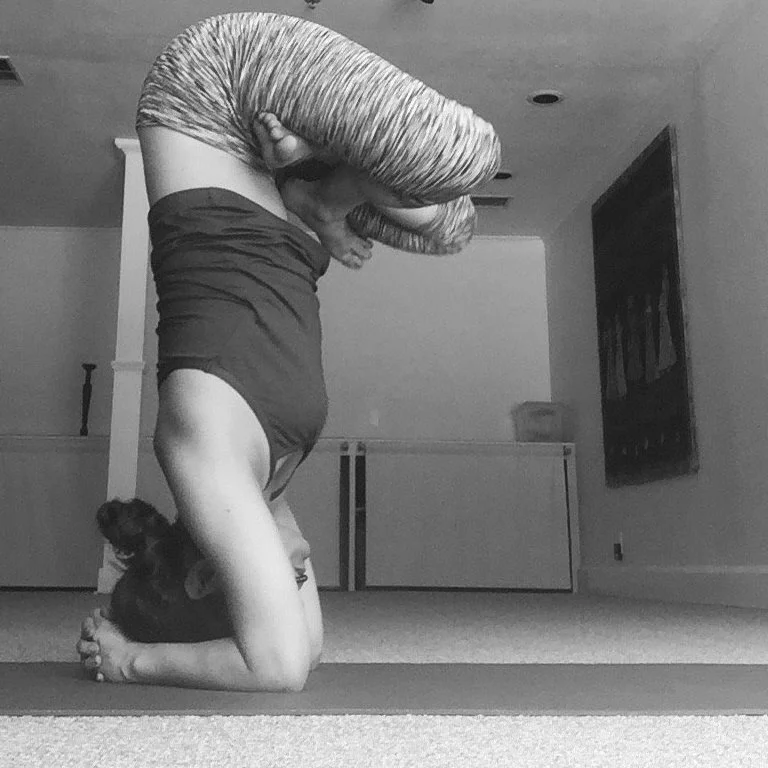Scope of Practice
With over 15 years of experience as a movement and embodiment educator, peer counselor, and my own journey of trauma recovery, I am honored to support you in deepening your embodied agency, sensitivity, and the somatic and relational fluency to meet life with greater love, clarity, and connection.
*I am not a therapist, and this work is not a substitute for mental health treatment. Instead, I offer an attuned, collaborative, safe, and carefully informed space for the cultivation of your own inner wisdom and agency.
5 stars on Lessons.com
“[Natasha has] taught me about myself in ways I didn’t even realize I needed. She is an old soul who truly SEES me each time I come to class, and meets me wherever I am. She is a gift and I’m incredibly grateful that my path has crossed hers in this life.”
— Katie K.
“The individual focus and care made my time with Natasha the best investment ever. She is a true pro, excellent practitioner, and loving soul. I cant praise her enough. I always come away with renewed energy, calm, and centered focus.”
— Sheri Boone
“Natashas vast knowledge and kind heart have extremely impressed me. Yoga with Natasha is transformative for my body and my spirit. It has helped me sleep better, kept my moods more centered, and motivated me to be more active.
Natasha tailors each class to meet the needs of students. I shared a session once with my mom, who explained certain muscle issues she has had for decades. After our yoga practice, my mom mentioned to me that she felt more relief from following Natashas guidance than she ever had from physical therapy.
Natasha is truly a special and talented instructor. I recommend her to everyone.”
— Annelise G.
how did I come to this work?
From early on in life, I found my connection to aliveness through the body ~ through movement, music, and modern dance. Over time, I learned to process my emotions through therapeutic and ritualized movement, and to guide others into deep experiences of the Self: of the deep core intelligence that lives in the body.
When severe trauma, heartbreak, and physical injury tore through my life in my early 30’s , I found myself forced to find a path through the wreckage of my life in a way that made sense to my body and mind. My recovery journey led me to seek a less-traditional and more communal, ancestral, nature based, and feminine-led healing path.
Through sisterhood, community, feminine and herbal wisdom lineages, somatic and polyvagal understanding, and a re-rooting into a cyclical relationship with life, I slowly learned to sing my heart and body back together. I made the unavoidable trips to the Underworld, and recovery became a grounded, devotional, day-by-day crucible: slowly rebuilding my connection to my own original beauty, dignity, agency, and belonging.
Here’s what I want you to know, I won’t try to save or fix you, because you don’t need saving or fixing. You do need to rediscover the wholeness and beauty that you have always been.
Trauma recovery can be lonely, disorienting, humbling work, but it’s made lighter with the right tools, with love and compassion as our guideposts, and with experienced company by our side.

-
"You are one of the best teachers I have ever had... it’s beyond words really. It’s just so perfect for what I need right now and you seem to have just the right amount of compassion and sensitivity, that is so unique. You bring spirituality and the philosophies of yoga so well onto the mat and I finally start to feel my body again... THANK YOU!!"
— N. Portland OR
-
"Thank you for being such an amazing teacher. You made me want to keep coming back and get better in a way I never had before, and you made it enjoyable. Your attention to detail and the way you so obviously care make you the best teacher I’ve ever been to. I was lucky to find you. Thank you again!”
— C.S. 'Yoga at the Raven' student, Los Angeles CA
-
“I love Natasha’s class!! Love! Love! Love it!! Natasha is the type of teacher that really pays attention to her students. She is so talented that she can give you a small tip to get your pose just perfect, weave a story into the entire practice AND teach a class that it is at everyone’s level”
— Z.S., 'Yoga Rays' student, Marina del Rey CA
-
I was lucky enough to be able to regularly attend Natasha's yoga classes for the past several years (2010-2018). Natasha shares her practice and her light in that rare way that nourishes everyone around her. Even in a community full of excellence, generosity, and love she stood out. Her class was always the highlight of my week, I left feeling better physically and spiritually every single time. The only thing that even begins to soothe the pain of losing her as my yoga teacher is knowing that she will still be that same generous, kind, loving soul who has been called to new avenues that will help herself and others like she helped all of her students here.
— J.M., Portland, OR
-
"Dearest Natasha, you've given me access to so much strength, wisdom and love over the past 5 years. My entire world thanks you. I can't figure an adequate way to thank you myself - other than to say that I hold you very close to my heart and hope that you're finding what you are looking for in California"
— J.C , Portland OR.
-
“Natasha’s classes are inspiring both spiritually and physically. She always invites her students to personal reflection during the class, but she also asks them to manifest their insights physically. She’s playful and technical. I’ve truly enjoyed her classes and have encouraged my friends to be a part of her practice. She’s helped me work through a tough back injury and is sensitive to each person’s limitations but does not allow them to necessarily limit themselves.”
— L.P., 'Mission Street Yoga' student, Los Angeles CA
-
“I have known Natasha for about 12 years and her level of studentship, devotion, commitment, interest, creativity, great attitude, humility, and above all love for the practice shines through in every moment of her life. She is a very clear embodiment of the practice of yoga, she lives it to the best of her ability daily and is a great example for others just living how she does.I have seen Natacha demonstrate her teaching skills to both the regular public as well as those more challenged, for example teaching in a woman’s spiritual/physical rehabilitation facility called Shakti Rising. Her ability to create a sacred, safe, and transformative environment are very natural. She gives articulate directions and guidance to lead students into their hearts and greater health. My confidence in Natasha is high, so much so that I have had her substitute my classes many times as well as take over several of my yoga classes in the San Diego area. Her offerings to the yoga community as a whole are a gift I’m excited for her to continue to share”
— Maral Hadidi, internationally recognized yoga teacher, San Diego
-
“I have been a private student of Natasha’s for the past two years. Her compassionate and lighthearted teaching style has helped me achieve many of my goals as a yoga student. Her practices are fun, dynamic and challenging, which has always pushed me above and beyond what I thought I was capable of doing. She has a beautiful view of the world and shares her inspiration throughout each session. She has taught me patience and perseverance through postures and meditation. I highly recommend her as an instructor. Natasha, thank you for being the beautiful and amazing person you are. Your inspiration shines likes rays from the sun and touches so many people. Thank you so much for believing in me and for introducing me to yoga”
— S.S., Private Yoga Student, San Diego CA


